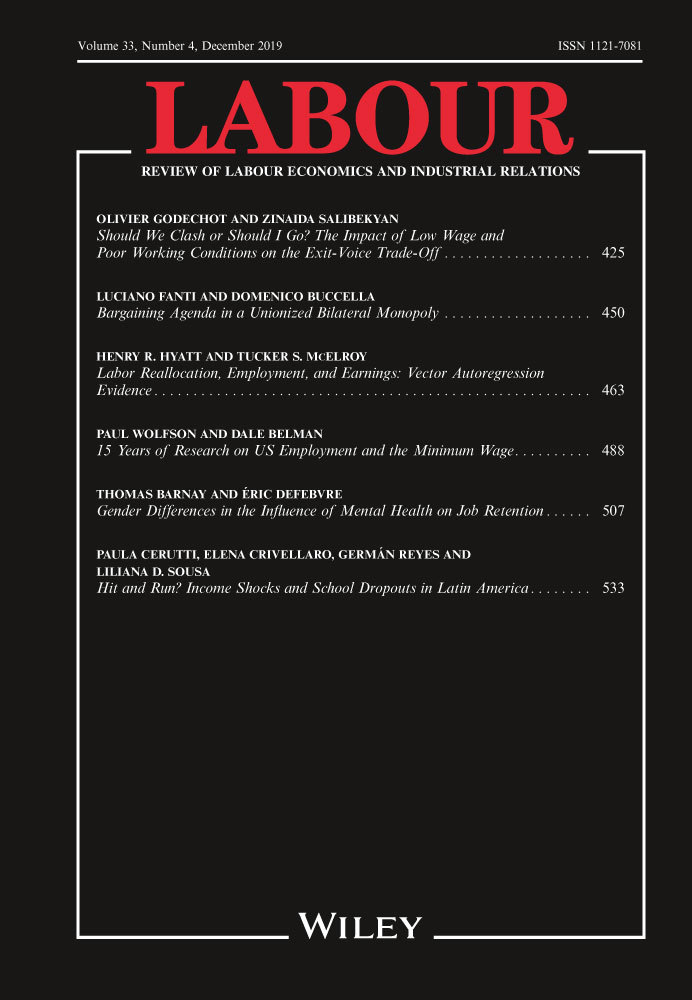
Who Buffers Income Losses after Job Displacement? The Role of Alternative Income Sources, the Family, and the State
in: LABOUR: Review of Labour Economics and Industrial Relations, No. 3, 2020
Abstract
Using survey data from the German Socio‐Economic Panel (SOEP), this paper analyses the extent to which alternative income sources, reactions within the household context, and redistribution by the state attenuate earnings losses after job displacement. Applying propensity score matching and fixed effects estimations, we find that income from self‐employment reduces the earnings gap only slightly and severance payments buffer losses in the short run. On the household level, we find little evidence for an added worker effect whereas redistribution by the state within the tax and transfer system mitigates income losses substantially.
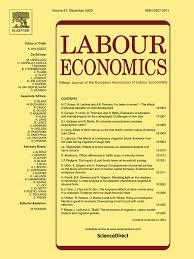
Does Extended Unemployment Benefit Duration Ameliorate the Negative Employment Effects of Job Loss?
in: Labour Economics, 2019
Abstract
We study the effect of job displacement due to bankruptcies on earnings and employment prospects of displaced workers and analyse whether extended potential unemployment benefit duration (PBD) ameliorates the negative consequences of job loss. Using German administrative linked employer-employee data, we find that job loss has long-lasting negative effects on earnings and employment. Displaced workers also more often end up in irregular employment relationships (part-time, marginal part-time employment, and temporary agency work) than their non-displaced counterparts. Applying a regression discontinuity approach that exploits a three months PBD extension at the age threshold of 50 we find hardly any effects of longer PBD on labour market outcomes of displaced workers.
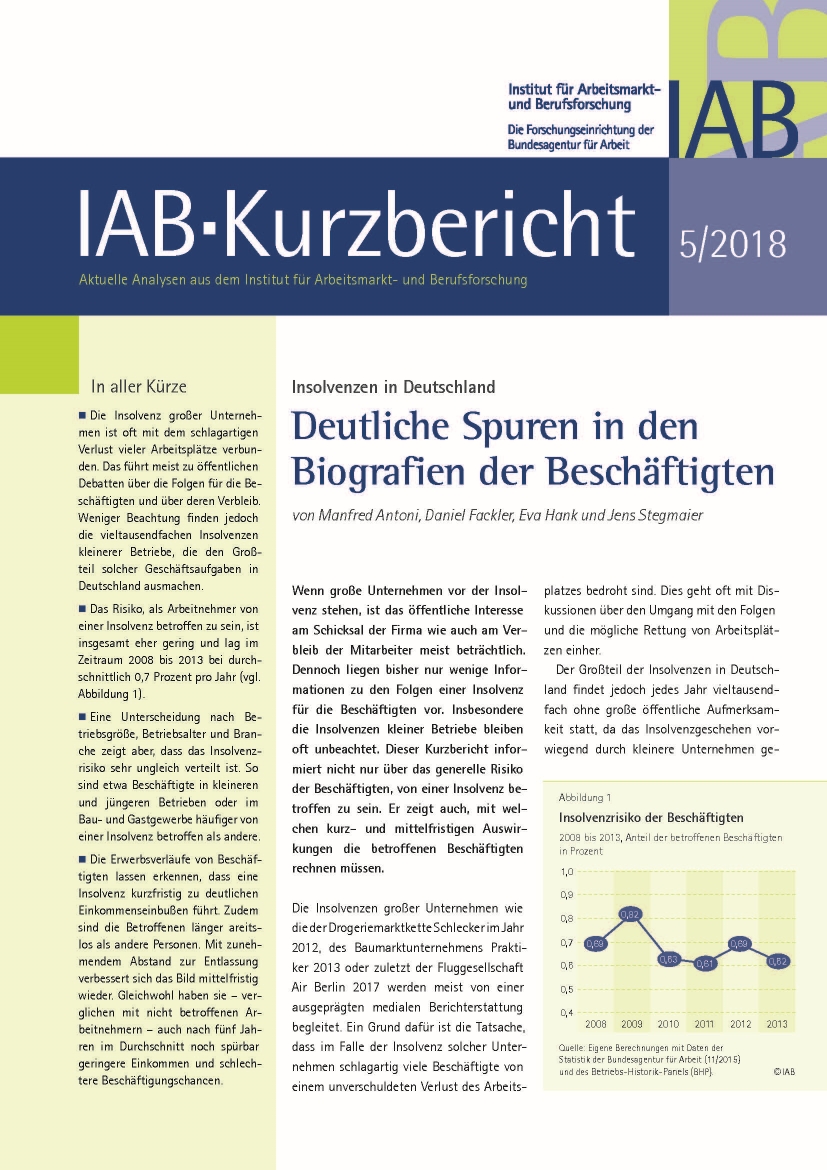
Insolvenzen in Deutschland: Deutliche Spuren in den Biografien der Beschäftigten
in: IAB-Kurzbericht 05/2018, Nürnberg, 2018
Abstract
Large, well-known firms that file for bankruptcy typically receive a lot of public attention. However, most bankrupt firms are rather small and we still know little about the effects of bankruptcies on workers. This report analyses the effects of bankruptcies on earnings and employment prospects of affected workers.
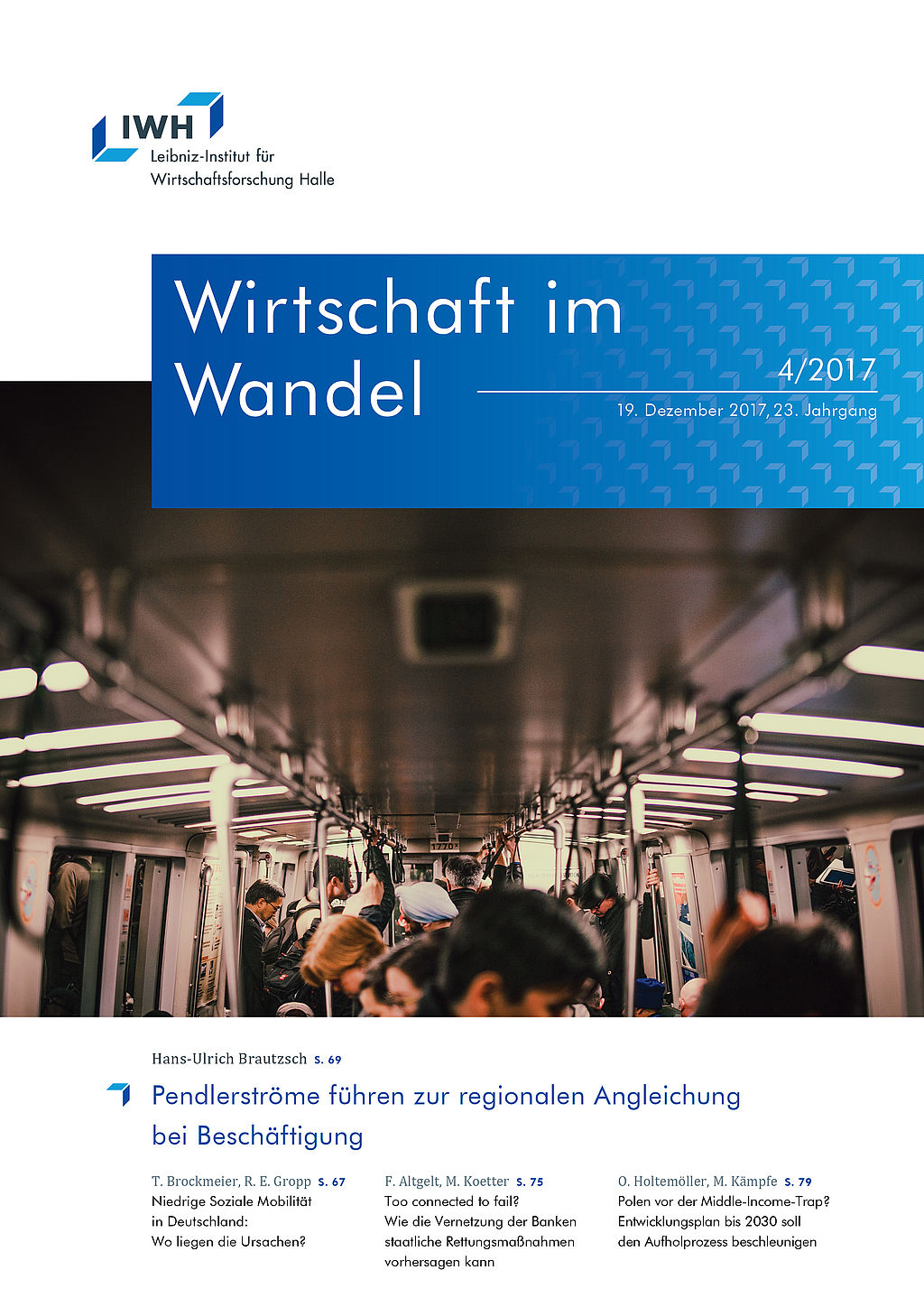
Arbeitnehmermitbestimmung und Tarifverträge im Fokus – 14. IWH/IAB-Workshop zur Arbeitsmarktpolitik
in: Wirtschaft im Wandel, No. 4, 2017
Abstract
Bereits zum 14. Mal fand am 18. und 19. September der diesjährige Workshop zur Arbeitsmarktpolitik am IWH in Halle (Saale) statt, der traditionell gemeinsam mit dem Institut für Arbeitsmarkt- und Berufsforschung (IAB) organisiert wird. Mit dem Schwerpunkt „Industrielle Beziehungen: Arbeitnehmermitbestimmung und Tarifverträge im Fokus“ widmete sich der Workshop einem wirtschaftspolitisch aktuellen Thema.
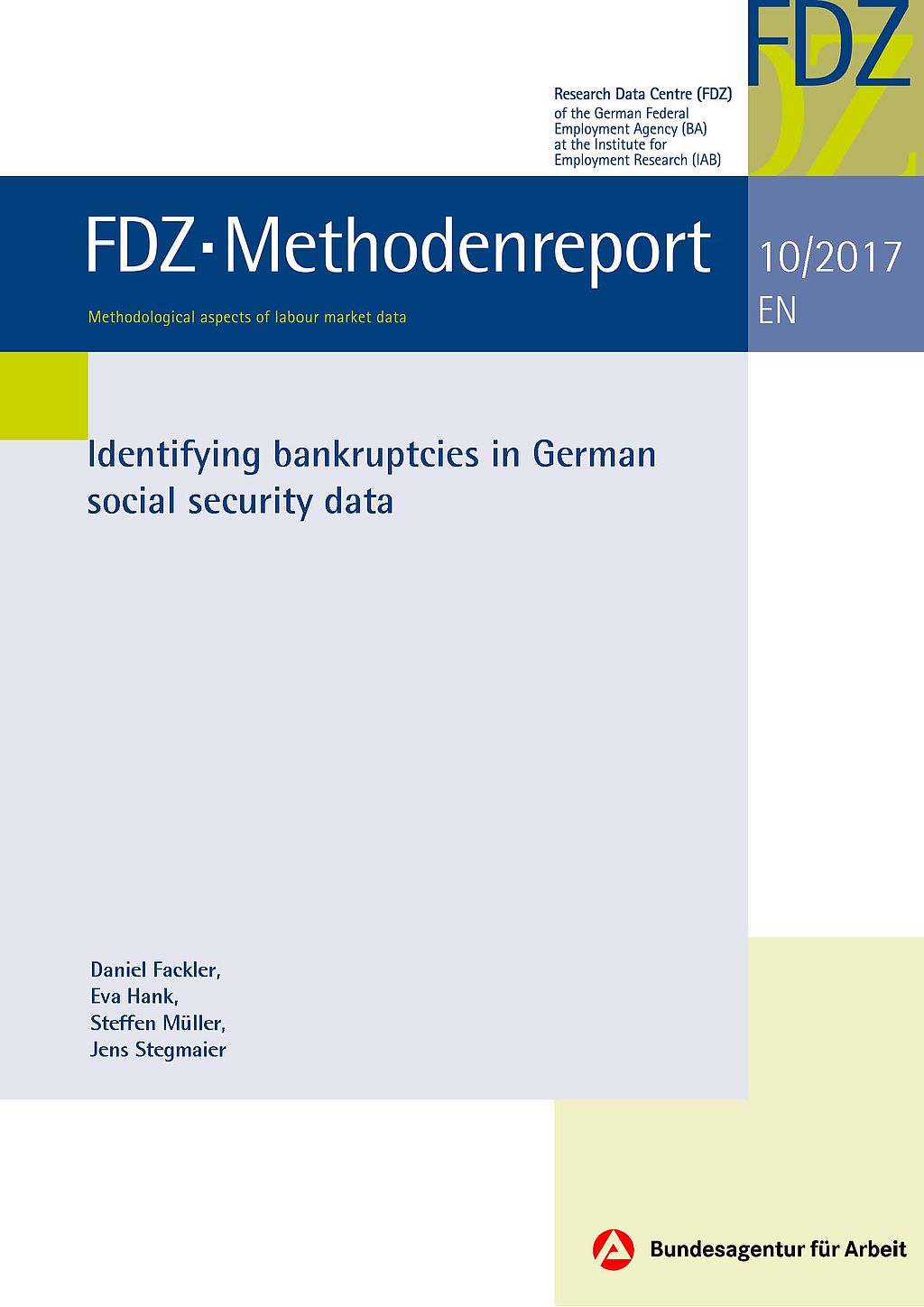
Identifying Bankruptcies in German Social Security Data
in: FDZ-Methodenreport, No. 10, 2017
Abstract
Many empirical studies about firm exits point out that it is important to distinguish between different types of closures, e.g., voluntary and involuntary liquidations. This report describes how exits due to bankruptcies can be identified in the German Establishment History Panel (BHP). In contrast to other closures, bankruptcies can be unambiguously regarded as indica-tion for economic failure and can therefore be interpreted as involuntary exits.
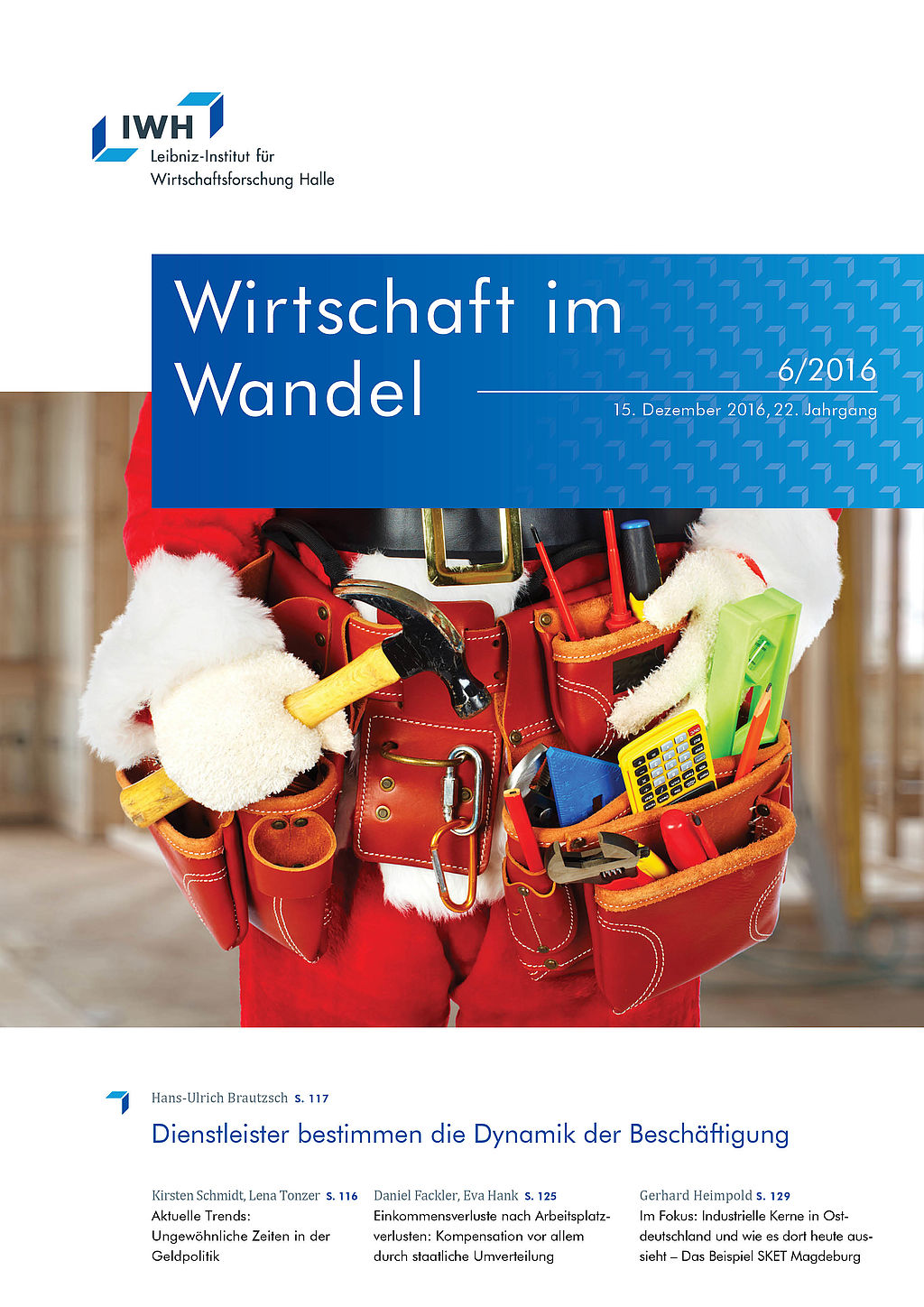
Einkommensverluste nach Arbeitsplatzverlusten: Kompensation vor allem durch staatliche Umverteilung
in: Wirtschaft im Wandel, No. 6, 2016
Abstract
Zahlreiche Studien zeigen, dass unfreiwillige Arbeitsplatzverluste zu hohen und langfristigen Einkommensverlusten bei betroffenen Arbeitnehmern führen. Die vorliegende Studie verwendet Befragungsdaten des Sozio-oekonomischen Panels (SOEP), um erstmals umfassend zu untersuchen, ob und in welchem Ausmaß Verluste im individuellen Arbeitseinkommen durch alternative Einkommensquellen, Reaktionen anderer Haushaltsmitglieder und durch staatliche Umverteilung ausgeglichen werden. Die Ergebnisse zeigen, dass Verdienstverluste vor allem durch staatliche Umverteilung kompensiert werden, wohingegen andere Kanäle nur eine untergeordnete Rolle spielen. Ein Vergleich internationaler empirischer Evidenz zu den Verdienstausfällen nach Arbeitsplatzverlusten spricht nicht dafür, dass staatliche Umverteilung den Anreiz, Verluste durch eigene Anstrengungen selbst auszugleichen, vermindert.
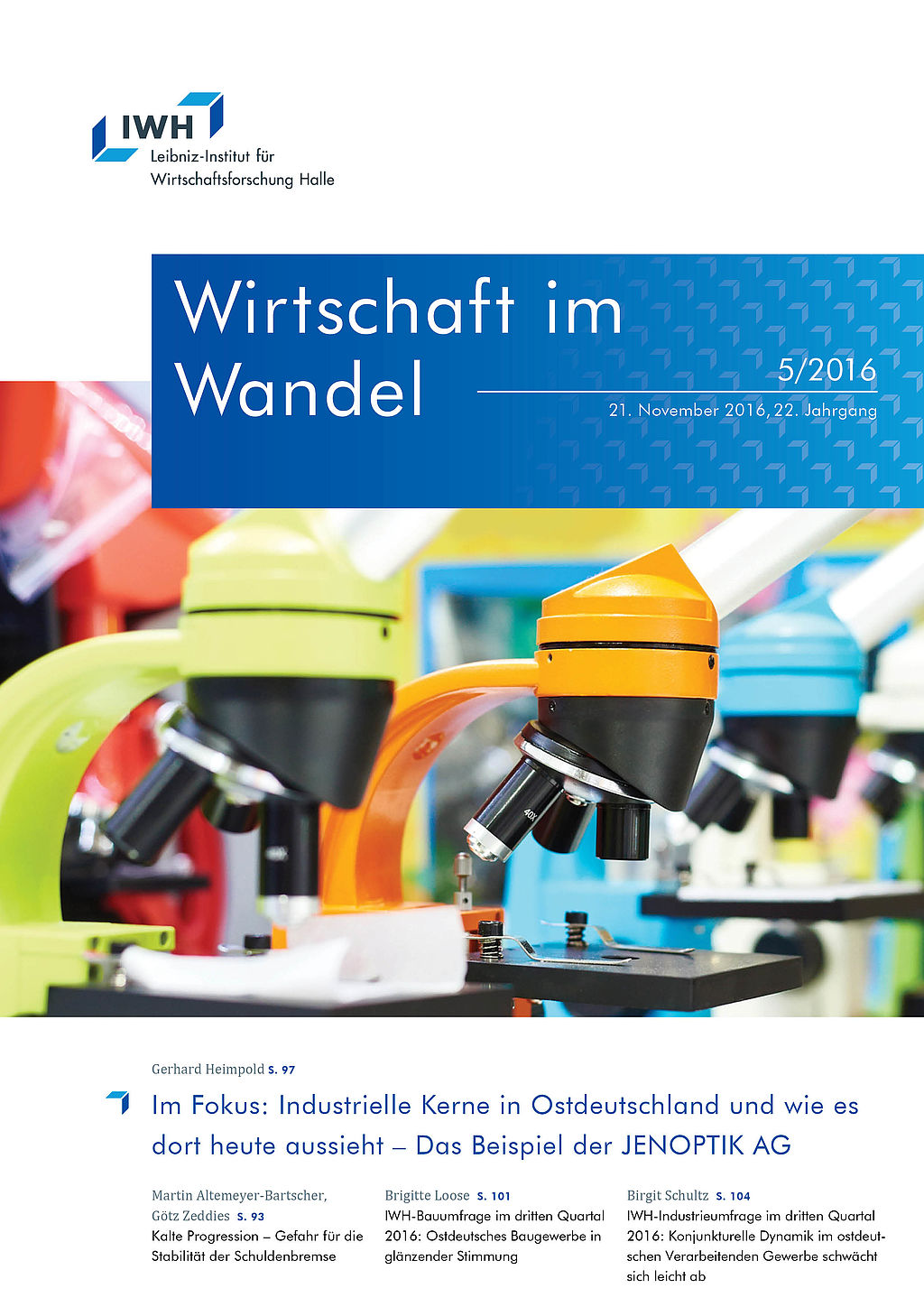
13. IWH/IAB-Workshop zur Arbeitsmarktpolitik – ein Tagungsbericht
in: Wirtschaft im Wandel, No. 5, 2016
Abstract
Mit dem Schwerpunkt „Lohn- und Einkommensungleichheit – Ausmaß und Entwicklung, Ursachen und Konsequenzen“ hat der diesjährige Workshop zur Arbeitsmarktpolitik, der traditionell gemeinsam vom Leibniz-Institut für Wirtschaftsforschung Halle (IWH) und dem Institut für Arbeitsmarkt- und Berufsforschung (IAB) veranstaltet wird, erneut ein wirtschaftspolitisch aktuelles Thema behandelt. Es handelte sich um den 13. deutschsprachigen Workshop dieser Art, der am 22. und 23. September am IWH in Halle (Saale) veranstaltet wurde.



